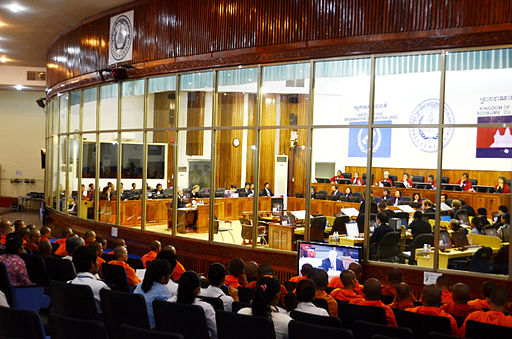Source: Wikimedia Commons
I recently returned from a week-long course on truth, memory and conflict at the International Conflict Research Institute (INCORE), a joint project at the University of Ulster and the United Nations University in Derry, northern Ireland.
Brandon Hamber, INCORE’s South African chairman, gave a fascinating lecture on his home country’s Truth and Reconciliation Commission, set up to bring restorative justice to the country. Under that system, the perpetrators who worked under the Apartheid government from 1960 to 1994 were granted amnesty if they confessed to their crimes in public hearings and proved that they were politically motivated.
A few scholars have proposed that a South African-styled truth commission would be more effective in Cambodia, given the quagmire that’s become of the Khmer Rouge tribunal. Supporters say that, because this mechanism is reconciliatory rather than confrontational, the worst abusers will come clean with their crimes and victims will get closure. Opponents argue it’ll rob the victims of long-overdue justice, since the perpetrators are let free.
But one brief example in Dr. Hamber’s lecture made me wonder if the dichotomy is that simple, or if a Cambodian truth commission may indirectly lead to both prosecution and reconciliation. He mentioned the case of Eugene de Kock, a South African police colonel who, despite confessing to multiple assassinations and asking for amnesty, was sentenced to 212 years in prison. In 1999, the commission upheld his conviction because he didn’t prove all his targets were political ones.
Since transitive justice isn’t my specialty, I’m raising a question for readers rather than drawing a conclusion. Could a Cambodian truth commission have a similar effect that is both justice-seeking and reconciliatory? Could it reveal far more dirt about the exact figures who ordered specific atrocities, while still punishing the worst of the worst who can’t prove all their actions were politically charged? Or is a truth commission a bad idea altogether, considering the historical and political gulf between South Africa and Cambodia?
 Facebook
Facebook  Twitter
Twitter  Soundcloud
Soundcloud  Youtube
Youtube  Rss
Rss 